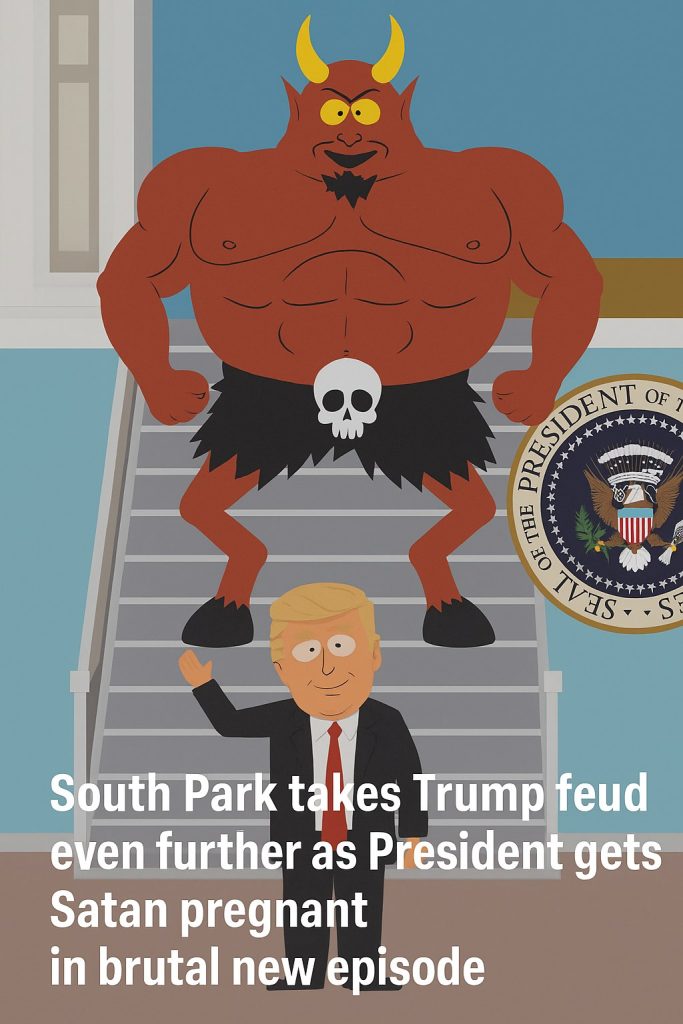South Park, the long-running animated series known for its fearless satire and biting political commentary, has once again pushed boundaries with its latest episode, featuring a wildly unexpected storyline involving former President Donald Trump and the devil himself. In a move that’s already sparking intense discussion online, the show takes its ongoing feud with Trump to an entirely new and surreal level, depicting Trump becoming pregnant by Satan.
This episode marks one of the boldest creative decisions in the show’s history, combining its trademark irreverence with highly provocative imagery and narrative twists. Fans and critics alike are buzzing over the storyline, which dives deep into the show’s sharp critique of Trump’s polarizing legacy and media persona. The pregnant Trump plotline is not just a shocking visual gag; it’s crafted to symbolize the chaotic and often dark consequences that the creators associate with Trump’s influence in American and global politics.
Set against the backdrop of the animated town of South Park—a microcosm for American society—the episode unfolds with the surreal scenario of Satan, portrayed with a mixture of humor and menace, impregnating the former president. The storyline uses this bizarre event to explore themes of power, corruption, and the merging of malevolent influence with political authority.
This latest satire follows a tradition of South Park’s fearless approach to commentary on current affairs, where no public figure is off-limits. Previous seasons have lampooned Trump extensively, often caricaturing his personality and presidential decisions with comedic exaggeration. However, the new episode’s explicit Satan storyline marks a dramatic escalation in the creative portrayal of Trump’s cultural and political impact.
Social media reactions to the episode have been swift and polarized. Supporters praise the show for continuing to challenge established figures and norms with creative boldness, viewing the pregnant Trump narrative as a powerful allegory on contemporary political discourse. Conversely, critics argue that it crosses lines of taste and respect, sparking debates over the limits of satire in the digital age.
From a production standpoint, the episode features the visually striking animation and sharp dialogue fans expect from the series. Its blend of dark humor and timely political critique encapsulates why South Park remains a significant player in cultural commentary decades after its debut.
As discussions unfold, the show’s creators have remained characteristically tight-lipped about their intentions, leaving audiences to interpret the layered symbolism themselves. What’s clear is that South Park continues to wield satire not just for laughs, but as a mirror reflecting deep societal divides and turbulent political realities.
Whether viewed as pure entertainment or pointed social critique, this new episode cements South Park’s reputation as a fearless cultural force willing to take risks and provoke conversation—no matter how uncomfortable.



